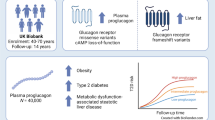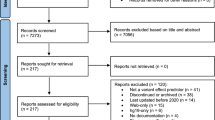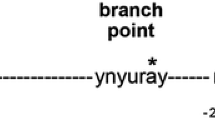Abstract
Introduction
Polymorphisms in the Thiopurine S-Methyltransferase (TPMT) gene are associated with decreased TPMT activity, but little is known about their impact on TPMT protein expression in the liver. This project is to conduct a genome-wide association study (GWAS) to identify single nucleotide polymorphisms (SNPs) associated with altered TPMT protein expression in human livers and to determine if demographics affect hepatic TPMT protein expression.
Methods
Human liver samples (n = 287) were genotyped using a whole genome genotyping panel and quantified for TPMT protein expression using a Data-Independent Acquisition proteomics approach.
Results and Discussion
Thirty-one SNPs were found to be associated with differential expression of TPMT protein in the human livers. Subsequent analysis, conditioning on rs1142345, a SNP associated with the TPMT*3A and TPMT*3C alleles, showed no additional independent signals. Mean TPMT expression is significantly higher in wildtype donors compared to those carrying the known TPMT alleles, including TPMT*3A, TPMT*3C, and TPMT*24 (0.107 ± 0.028 vs. 0.052 ± 0.014 pmol/mg total protein, P = 2.2 × 10−16). After removing samples carrying the known TPMT variants, European ancestry donors exhibited significantly higher expression than African ancestry donors (0.109 ± 0.026 vs. 0.090 ± 0.041 pmol/mg total protein, P = 0.020).
Conclusion
The GWAS identified 31 SNPs associated with TPMT protein expression in human livers. Hepatic TPMT protein expression was significantly lower in subjects carrying the TPMT*3A, TPMT*3C, and TPMT*24 alleles compared to non-carriers. European ancestry was associated with significantly higher hepatic TPMT protein expression than African ancestry, independent of known TPMT variants.



Similar content being viewed by others
References
Appell ML, Berg J, Duley J, Evans WE, Kennedy MA, Lennard L, Marinaki T, McLeod HL, Relling MV, Schaeffeler E, Schwab M, Weinshilboum R, Yeoh AEJ, McDonagh EM, Hebert JM, Klein TE, Coulthard SA. Nomenclature for alleles of the thiopurine methyltransferase gene. Pharmacogenet Genomics. 2013;23(4):242–8.
Dervieux T, Meyer G, Barham R, Matsutani M, Barry M, Boulieu R, Neri B, Seidman E. Liquid chromatography-tandem mass spectrometry analysis of erythrocyte thiopurine nucleotides and effect of thiopurine methyltransferase gene variants on these metabolites in patients receiving azathioprine/6-mercaptopurine therapy. Clin Chem. 2005;51(11):2074–84.
Chrzanowska M, Kuehn M, Januszkiewicz-Lewandowska D, Kurzawski M, Droździk M. Thiopurine S-methyltransferase phenotype-genotype correlation in children with acute lymphoblastic leukemia. Acta Pol Pharm. 2012;69(3):405–10.
Lennard L. Implementation of TPMT testing. Br J Clin Pharmacol. 2014;77(4):704–14.
Weitzel KW, Smith DM, Elsey AR, Duong BQ, Burkley B, Clare-Salzler M, Gong Y, Higgins TA, Kong B, Langaee T, McDonough CW, Staley BJ, Vo TT, Wake DT, Cavallari LH, Johnson JA. Implementation of standardized clinical processes for TPMT testing in a diverse multidisciplinary population: challenges and lessons learned. Clin Transl Sci. 2018;11(2):175–81.
Relling MV, Schwab M, Whirl-Carrillo M, Suarez-Kurtz G, Pui CH, Stein CM, Moyer AM, Evans WE, Klein TE, Antillon-Klussmann FG, Caudle KE, Kato M, Yeoh AEJ, Schmiegelow K, Yang JJ. Clinical Pharmacogenetics Implementation Consortium Guideline for Thiopurine Dosing Based on TPMT and NUDT15 Genotypes: 2018 Update. Clin Pharmacol Ther. 2019;2019 105(5):1095–105.
Stocco G, Cheok M, Crews K, Dervieux T, French D, Pei D, Yang W, Cheng C, Pui CH, Relling M, Evans W. Genetic polymorphism of inosine triphosphate pyrophosphatase is a determinant of Mercaptopurine metabolism and toxicity during treatment for acute lymphoblastic leukemia. Clinical Clin Pharmacol Ther. 2009;85(2):164–72.
Benkov K, Lu Y, Patel A, Rahhal R, Russell G, Teitelbaum J, f.t.N.C.o.I.B. Disease, role of Thiopurine metabolite testing and Thiopurine methyltransferase determination in pediatric IBD. J Pediatr Gastroenterol Nutr. 2013;56(3):333–40.
Coelho T, Andreoletti G, Ashton JJ, Batra A, Afzal NA, Gao Y, Williams AP, Beattie RM, Ennis S. Genes implicated in thiopurine-induced toxicity: comparing TPMT enzyme activity with clinical phenotype and exome data in a paediatric IBD cohort. Sci Rep. 2016;6(1):1–9.
Tamm R, Mägi R, Tremmel R, Winter S, Mihailov E, Smid A, Möricke A, Klein K, Schrappe M, Stanulla M, Houlston R, Weinshilboum R, Mlinarič Raščan I, Metspalu A, Milani L, Schwab M, Schaeffeler E. Polymorphic variation in TPMT is the principal determinant of TPMT phenotype: a Meta-analysis of three genome-wide association studies. Clin Pharmacol Ther. 2017;101(5):684–95.
Wang X, He B, Shi J, Li Q, Zhu H-J. Comparative proteomics analysis of human liver Microsomes and S9 fractions. Drug Metab Dispos. 2020;48(1):31–40.
He B, Shi J, Wang X, Jiang H, Zhu H-J. Label-free absolute protein quantification with data-independent acquisition. J Proteome. 2019;200:51–9.
He B, Shi J, Wang X, Jiang H, Zhu H-J. Genome-wide pQTL analysis of protein expression regulatory networks in the human liver. BMC Biol. 2020;18(1):97.
Purcell S, Neale B, Todd-Brown K, Thomas L, Ferreira MAR, Bender D, Maller J, Sklar P, De Bakker PIW, Daly MJ, Sham PC. PLINK: a tool set for whole-genome association and population-based linkage analyses. Am J Hum Genet. 2007;81(3):559–75.
Marees AT, De Kluiver H, Stringer S, Vorspan F, Curis E, Marie-Claire C, Derks EM. A tutorial on conducting genome-wide association studies: quality control and statistical analysis. Int J Methods Psychiatr Res. 2018;27(2):e1608.
Gurwitz D, Rodríguez-Antona C, Payne K, Newman W, Gisbert JP, De Mesa EG, Ibarreta D. Improving pharmacovigilance in Europe: TPMT genotyping and phenotyping in the UK and Spain. Eur J Hum Genet. 2009;17(8):991–8.
Tai H-L, Krynetski EY, Schuetz EG, Yanishevski Y, Evans WE. Enhanced proteolysis of thiopurine S-methyltransferase (TPMT) encoded by mutant alleles in humans (TPMT*3A, TPMT*2): mechanisms for the genetic polymorphism of TPMT activity. Proc Natl Acad Sci. 1997;94(12):6444–9.
Ujiie S, Sasaki T, Mizugaki M, Ishikawa M, Hiratsuka M. Functional characterization of 23 allelic variants of thiopurine S-methyltransferase gene (TPMT*2 – *24). Pharmacogenet Genomics. 2008;18(10):887–93.
Salavaggione OE, Wang L, Wiepert M, Yee VC, Weinshilboum RM. Thiopurine S-methyltransferase pharmacogenetics: variant allele functional and comparative genomics. Pharmacogenet Genomics. 2005;15(11):801–15.
Hon YY, Fessing MY, Pui C-H, Relling MV, Krynetski EY, Evans WE. Polymorphism of the Thiopurine S-methyltransferase gene in African-Americans. Hum Mol Genet. 1999;8(2):371–6.
Srimartpirom S, Tassaneeyakul W, Kukongviriyapan V, Tassaneeyakul W. Thiopurine S-methyltransferase genetic polymorphism in the Thai population. Br J Clin Pharmacol. 2004;58(1):66–70.
Ando M, Ando Y, Hasegawa Y, Sekido Y, Shimokata K, Horibe K. Genetic polymorphisms of thiopurine S-methyltransferase and 6-mercaptopurine toxicity in Japanese children with acute lymphoblastic leukaemia. Pharmacogenet Genomics. 2001;11(3):269–73.
Garat A, Cauffiez C, Renault N, Lo-Guidice JM, Allorge D, Chevalier D, Houdret N, Chavatte P, Loriot MA, Gala JL, Broly F. Characterisation of novel defective thiopurine S-methyltransferase allelic variants. Biochem Pharmacol. 2008;76(3):404–15.
McLeod HL, Lin J-S, Scott EP, Pui C-H, Evans WE. Thiopurine methyltransferase activity in American white subjects and black subjects. Clin Pharmacol Ther. 1994;55(1):15–20.
Cooper SC, Ford LT, Berg JD, Lewis MJ. Ethnic variation of thiopurine S-methyltransferase activity: a large, prospective population study. Pharmacogenomics. 2008;9(3):303–9.
Ogungbenro K, Aarons L. Physiologically based pharmacokinetic model for 6-mercpatopurine: exploring the role of genetic polymorphism in TPMT enzyme activity. Br J Clin Pharmacol. 2015;80(1):86–100.
Author information
Authors and Affiliations
Corresponding author
Ethics declarations
Conflict of Interest
The authors declare no conflicts of interest.
Additional information
Publisher’s Note
Springer Nature remains neutral with regard to jurisdictional claims in published maps and institutional affiliations.
Supplementary Information
ESM 1
(DOCX 14 kb)
Rights and permissions
Springer Nature or its licensor (e.g. a society or other partner) holds exclusive rights to this article under a publishing agreement with the author(s) or other rightsholder(s); author self-archiving of the accepted manuscript version of this article is solely governed by the terms of such publishing agreement and applicable law.
About this article
Cite this article
Smith, L.S., Wang, X., Shi, J. et al. Genome-Wide Association Study for the Genetic Determinants of Thiopurine Methyltransferase Protein Expression in Human Livers and Racial Differences. Pharm Res 40, 2525–2531 (2023). https://doi.org/10.1007/s11095-023-03558-1
Received:
Accepted:
Published:
Issue Date:
DOI: https://doi.org/10.1007/s11095-023-03558-1




